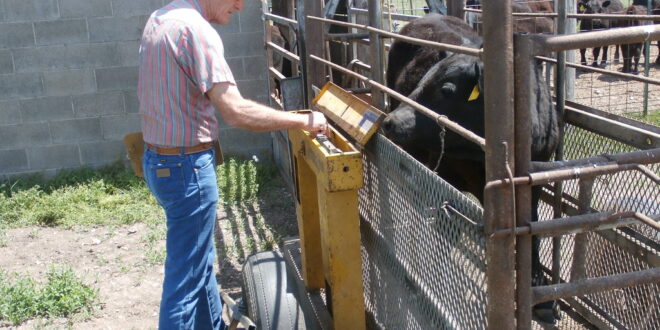As time goes on, more and more people decide to start their own farm and keep pets. They do this primarily because they have a desire to breed animals that will be healthy, but also because the breeders themselves will have control over the whole process of breeding the animal. So more and more people decide to keep chickens, pigs, sheep, goats, but most of them decide to keep cattle. Cattle breeding is on the rise, as evidenced by the growing number of farms that specialize exclusively in this purpose. An increasing number of people decide to take care of them, to feed them well, to take care of them, but care must also be taken for their measurement with special scales.
Weighing cattle is important for doing everything from proper medication dosage and feed quantity to calf growth and herd production efficiency, with collecting and measuring data related to livestock performance standard practice these days. As Beef magazine notes, unless there are sources of income other than cattle, small ranches tend to struggle to be profitable, which means having accurate cattle weights is essential.
Weights play a role in nutrition and genetics, health, pregnancy, and more. As traditional weighing methods have often proven to be time-consuming and inaccurate, cattle scales like those from CattleScale can be counted on for dependable weighing so that you can make the most informed decisions. When trying to decide which cattle scale to buy, there are several things to consider whether you have a small or large ranch.
Table of Contents
1. Deciding Between Portable and Permanent Options
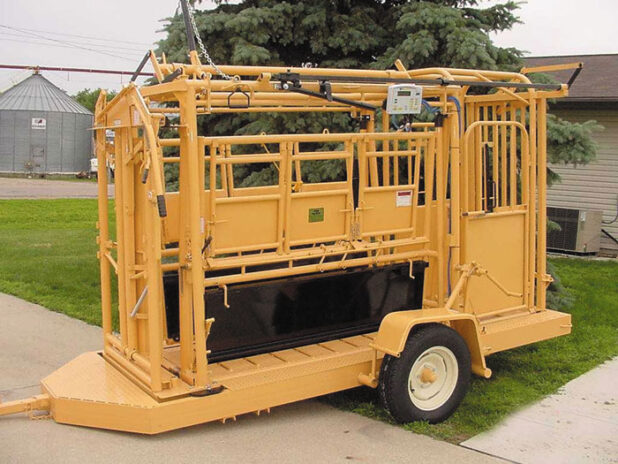
Cattle keepers are often faced with many responsibilities related to livestock. Thus they are obliged to take care that their cattle have enough food, water, if necessary to take to the doctor, but also each of the cattle must always be weighed in a timely manner. The owner is the one who has to take care of the ideal weight of the animals, so he needs a scale. The scales can be portable or static, and the owner would know best which one is better. Why do we say this? We say this because he knows best whether he would need to carry it or whether it would be in a place where the cattle whose weight should be measured on the scales would be.
Depending on your operation and individual need, one of the first considerations is buying a permanent or portable cattle scale. Whether you need to weigh individual animals or a group is one of the primary factors in this decision. Portable scales are available for squeeze chutes and alley weighing. They allow for more flexibility, with a quick set up anywhere you are on the property. The scale can be set up in an alleyway anywhere the animal will be stopping, making it easy to capture weights. Portable options can be used on rougher, unimproved surfaces like gravel as there is no need for concrete. Converting a squeeze chute into a livestock scale system can be done by mounting load cells underneath.
A stationary, permanent scale is typically mounted on a level surface with concrete footing to ensure reliability and safety. Some include a customized platform with gates so that the animals can be contained, allowing the rancher to corral them and record the average daily weight gain.
2. The Environment
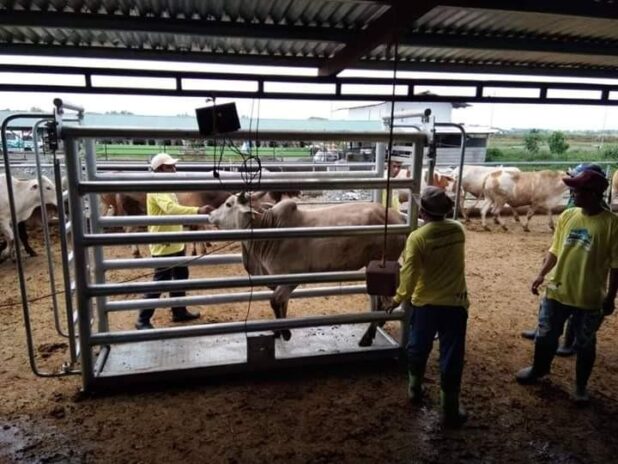
This scale needs to be well defended as needed. The needs are clear – measuring the weight of animals. But there is something else you need to decide. In addition to the need to decide whether it will be portable or static scales, you also need to choose where it will be placed in your environment. This is of great importance because it should be close to animal habitats, but also certain standards and rules should be met. So let’s see something more about this.
As we already said, you’ll want to consider your environment too. For example, if the scale will be exposed to corrosive elements, you’ll need something that’s extra heavy-duty that can handle the abuse. All scales for livestock weight are designed to hold up in harsh conditions, but it can make things easier if you have wash-down scales that can be cleaned frequently.
3. Mechanical or Electronic
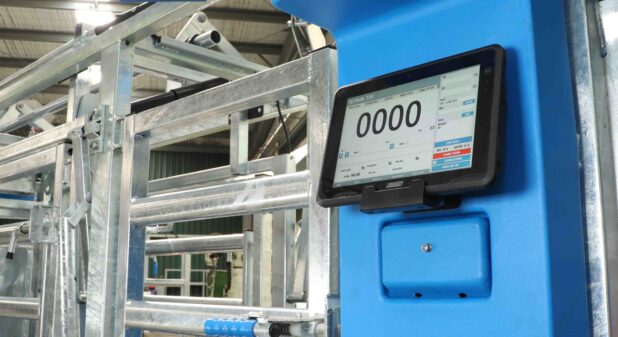
We all know that there are different types of scales. Each of them is specific to something. Some of them are made of concrete materials, others are made for a specific purpose, certain standards are respected during the construction and the like. But there is something most basic about distinguishing scales. It is whether it is mechanical and uses weights to measure weight or it is digital and has a system that decides what the weight of the animal is. So before you is a new task – to choose which of these two scales will be your choice.
Mechanical scales can become inaccurate, and subsequent repairs can be extremely costly. This type of scale may be ineligible for certification and may not be licensed either. By comparison, modern electronic scales are inexpensive, easier to install, and highly accurate, eliminating those issues.
4. Consider the Features You’ll Need
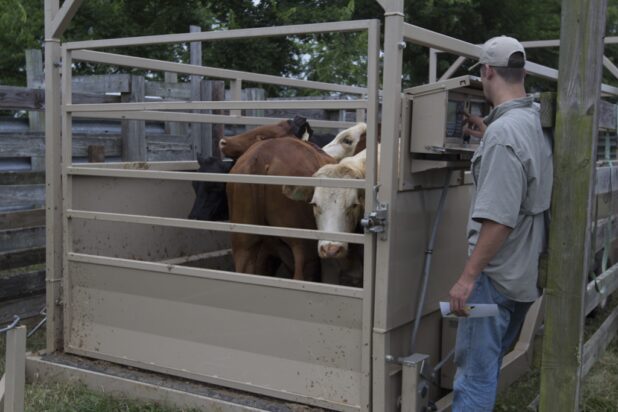
Thanks to technology, a cattle scale is a lot more than just weighing equipment. Depending on the brand and model, they come with all sorts of features for recording, tracking, and storing information on the animals so that you can monitor productivity. Advanced models are compatible with cattle management software which means your records will automatically be kept up-to-date. Some also work with EID readers so that the scale can identify each individual animal without having to manually select it on a list.
Technology integrated into these more advanced scales means that data can be captured quickly in a high-volume operation, making a big difference in time, potentially saving around 10 seconds per animal. If you have a thousand head of cattle, for example, that means saving three hours of labor in just one day.
That is why we recommend you to see your needs, to see what you need, in what conditions you will use it and what you prefer, and then according to the information, you will have, choose the one that you will consider the best for your needs.
 World Magazine 2024
World Magazine 2024
